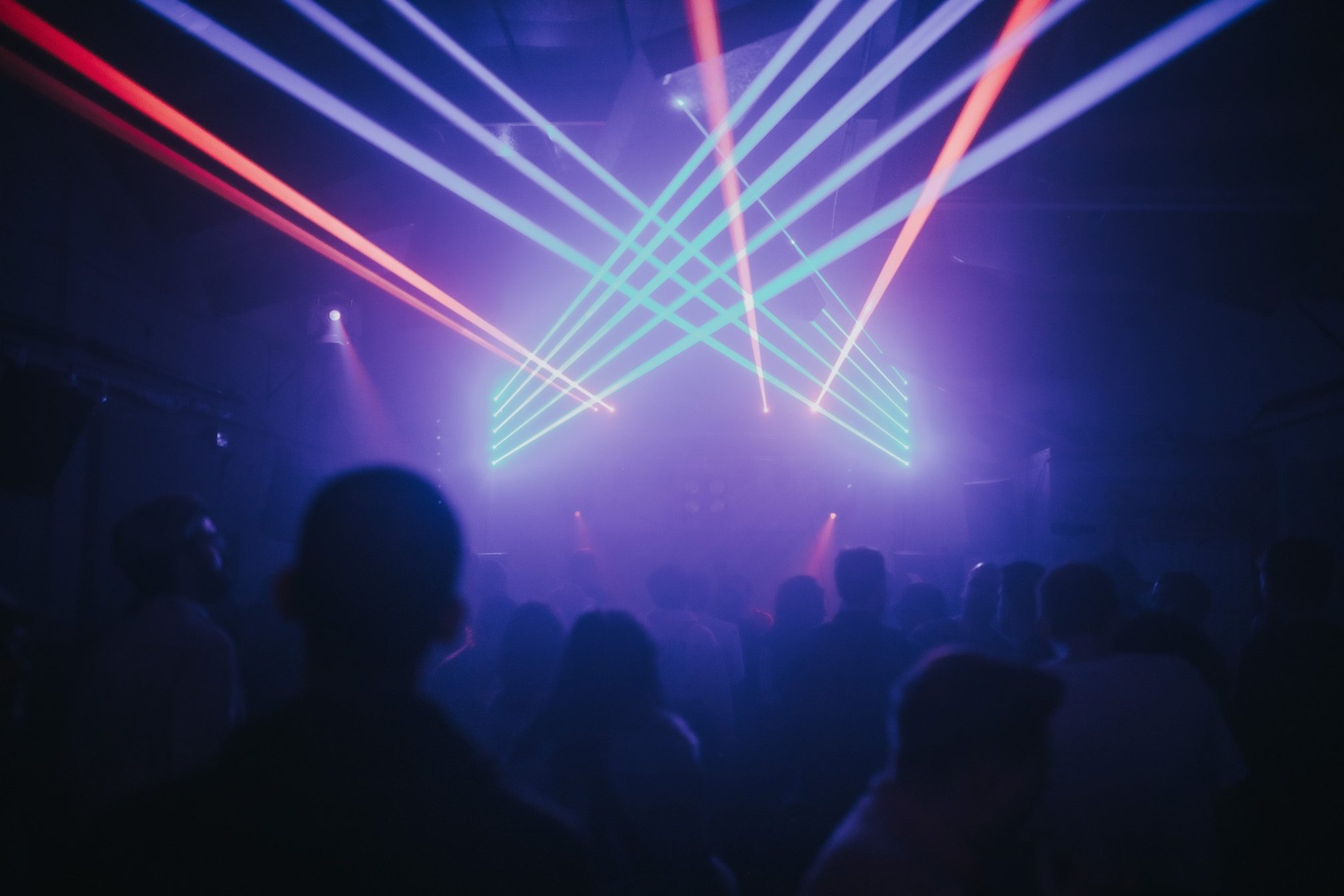 Features
Features
OS Community are the London party collective empowering disadvantaged people
From throwing illegal raves to helming inner city youth initiatives, OS Community use dance music as a springboard to making a difference in society
A 15-person scrum huddles around the decks as Young Thug’s ‘The London’ gets the dance floor pumped; guys and girls rap along to the lyrics and the whole space is effervescent with excitable energy. This is just seconds after the previous DJ closes his set with Jay-Z’s ‘Big Pimpin’. Perhaps not what most people would expect from an off-piste rave in an industrial estate but the crowd laps it up. We’re in Bermondsey, south-east London at Venue MOT Unit 18 for Creature Comforts, a night run by OS Community’s internationalJOE and Baron, AKA Joseph Agboola, 31, and Luis Sabogal Ceballos, 30. They’ve been running events for four years now and at Creature Comforts they’ve booked a DJ couplet that is typical of their forward-thinking policy. Headliners R.O.S.H. and Facta handle business between 1 and 5am, blending a variety of styles including techno, dubstep, garage and afrohouse, with Joseph and Luis bookending the night respectively.
OS Community are still a relatively young outfit with Joseph, Luis and their comrade Jamie Shearer organising parties mostly within the south London vicinity. Jos and Luis grew up in the local area and have known each other since they met at school aged 10. Joseph’s family are Nigerian, while Luis hails from Colombia, where he lived until he was 4 when his family emigrated to London. At the age of 16 Joseph’s family moved to America, relocating to Florida and subsequently moving to New Jersey and California. He attended an HBCU (Historically Black College and University) and found himself empowered by the institution’s focus on Black excellence. Back in south London Luis’ life went in the opposite direction and he ended up spending a year in jail on remand after being implicated in a serious crime. Though he lost a year of his life, Luis credits the incident with changing everything - taking him away from bad influences and giving him a massive wake up call. He was eventually cleared of the charge and began to take an alternate path, finding solace in music and London’s rave scene. “Me and my friend Bakes started out going to tech house raves at Lightbox and places like that but we got bored of it,” Luis explains, he’s the more introverted of the two, equipped with a deep knowledge of electronic music and a passion for digging. “We wanted to DJ as well and we knew there was better music out there so we started doing our own parties.”
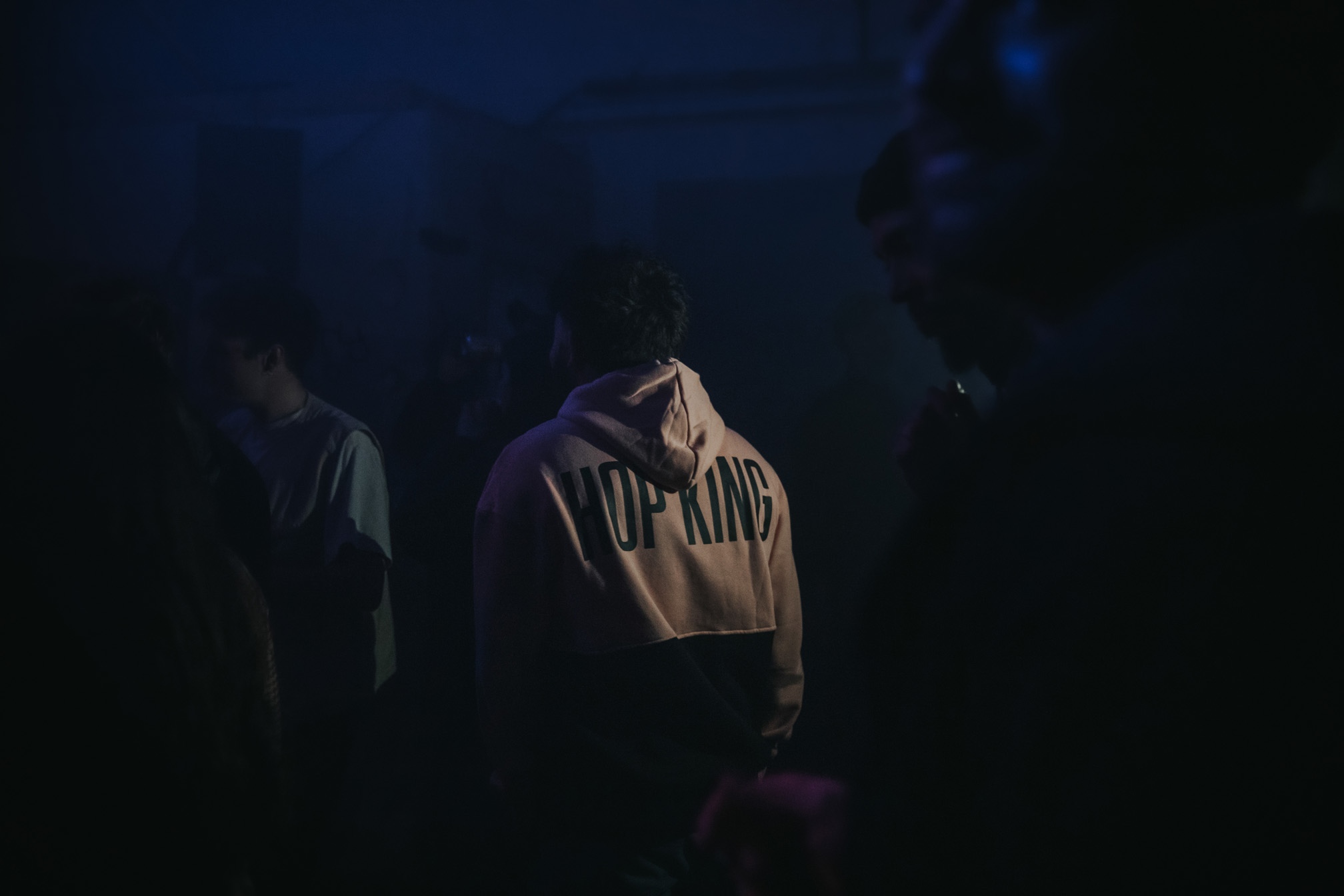
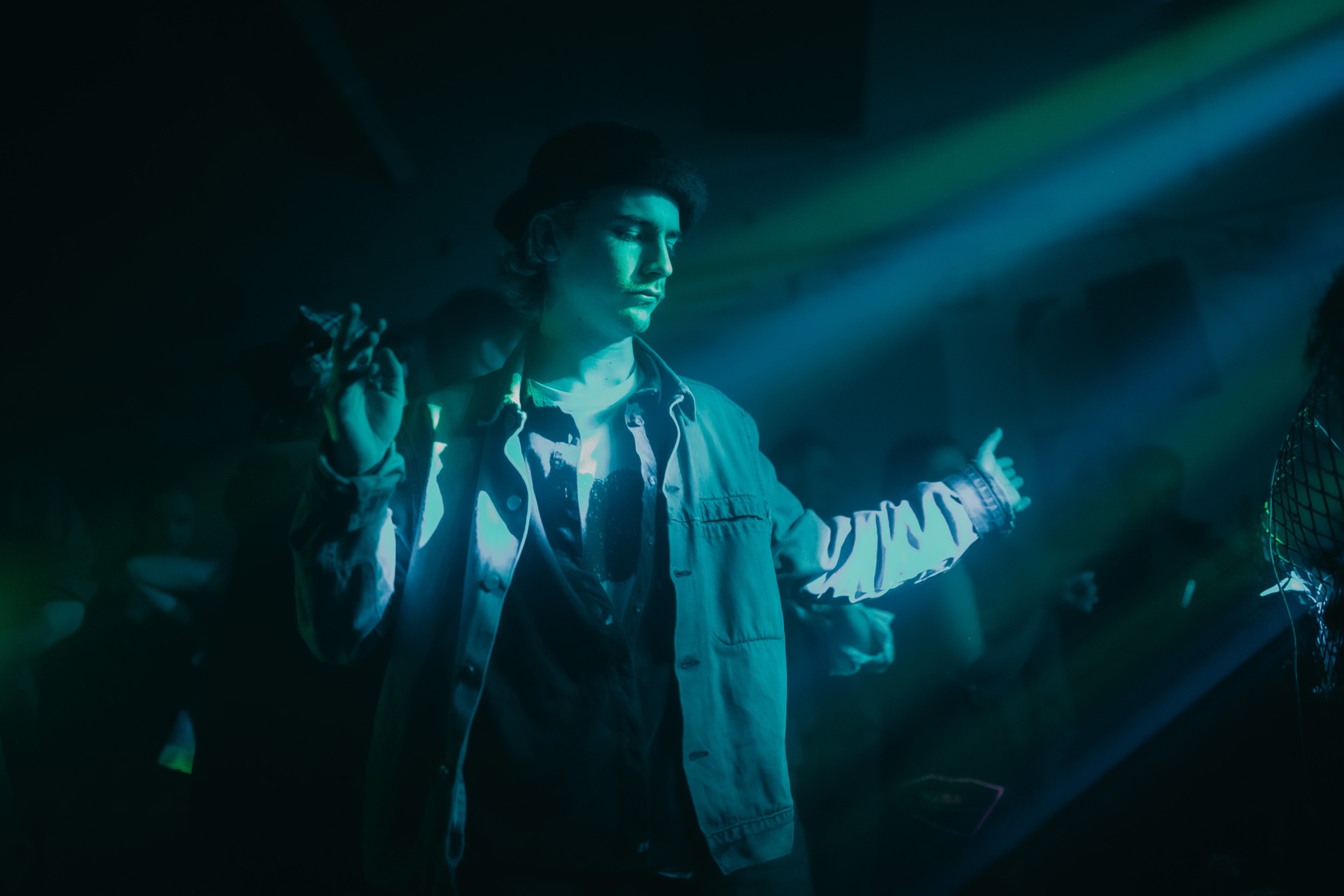
In the beginning Luis and Joseph organised illegal gatherings, using a variety of novel settings to share the music they love, mostly attended by friends from their local area to begin with. Locations included an abandoned nursery, where a friend had been living as part of a guardianship, a scheme where people can rent property for a greatly reduced cost as protection for the premises. She notified the guys and made sure she left a window open when she moved out so they could sneak in. (One of the extended OS crew tells me the toilet situation was interesting as all the urinals were at kid’s height). They also held an audacious outdoor rave at Kennington skate bowl and in various al fresco settings from south London to Canning Town. Along the way Joseph and Luis have accumulated a diverse mix of friends and associates, from the people they grew up with to various characters and collectives from the party scene in London and further afield. This is evident at the party Mixmag attends on 2020's Leap Day, where the dancefloor represents an antidote to the homogeneity that is often present in clubs; art students, locals, older heads, a couple of industry bods and a few of the OS crew’s old friends are all rubbing shoulders on the floor.
“One thing people always say about our parties is that they’re ‘different’. The way we started has helped us a lot,” says Luis. “Our friend Andres found a spot in Bermondsey, (Russia Dock Woodland), where he thought we could do something. All we needed was a soundsystem. Bakes had a Pioneer DJ controller, so we were like, ‘Fuck it, let’s just do a party and tell all our friends’. All our immediate friends could see the passion we had and that we were trying to do something, so they all came.” Those early gatherings contained just the right mixture of local friends and associates from the rave scene, combined with the seductive appeal of lawlessness, plus good music and that all-important genuine, authentic passion. Ingredients that form the foundation of what they’re doing today, minus the illicit locations.
Read this next: 20 Black UK house music acts you should know about
Luis is the keen researcher of the crew. He’s been learning everything he can about techno and electronic music history since he moved on from tech house; watching documentaries, listening to mixes and going to a long list of raves and festivals to feed his hunger for the music. A critical moment came around his birthday in April 2013 when, still a techno novice, he led a couple of friends on a mission to Cable in London Bridge where James Ruskin’s Blueprint was hosting Ben Klock, Blawan and DVS1. “Any new music me and Bakes were hearing that night, we were geeking out just getting excited,” Luis says. “From there, you just go down that rabbit hole discovering more and more artists. Bakes introduced me to the musical side of it as well with people like Four Tet, Jamie xx, Burial… indie bands, it wasn’t just electronic music we were listening to. If you’re intrigued by something you dig into it a lot more and we took it serious.”
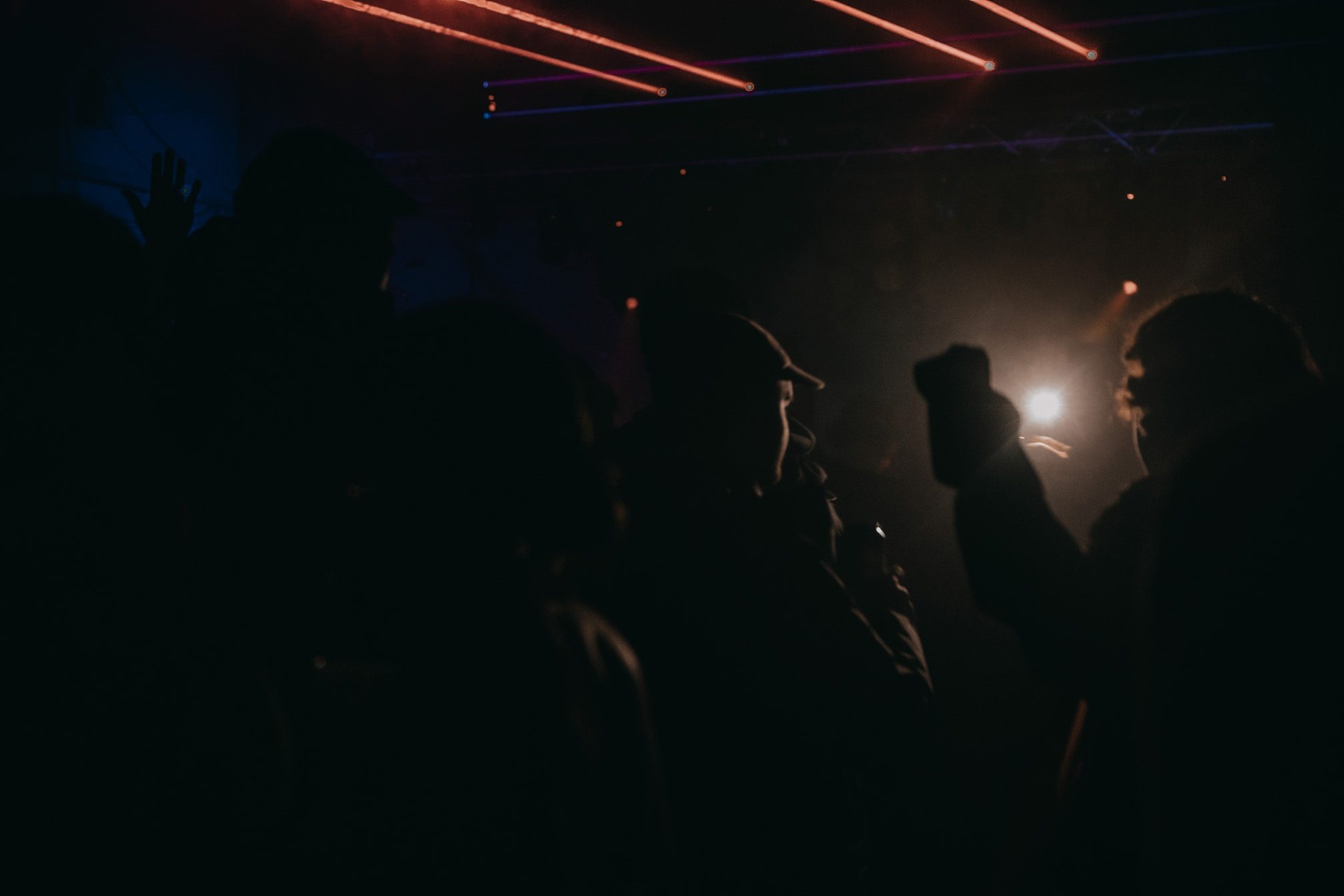
Meanwhile, Joseph was coming back from the States every summer and being corralled into joining his old friends whenever they went out. One year he joined a big crew on a trip to Hideout, another time they caught Jamie xx at Dance Tunnel. Each outing planted a small seed in Joseph’s mind. Finally, in the summer of 2016, he was fully converted after attending Dekmantel and Dimensions back-to-back. “I didn’t want to go back to America,” Joseph explains, who by his own admission has ‘the gift of the gab’. As with most of the best double acts, he is the Yin to Luis’ Yang. “I ended up moving to Amsterdam because it did something to me. Every relationship I’ve had since then I’ve been able to be my truest self because I found something where I fit in, I found my people. This scene is so giving and loving.”
What they both found in electronic music was not only an alternative to life in south-east London, it was something they wanted to share with everyone.
Over the past four years they’ve been wrapped up in raves, parties and festivals, making friends all over the world and connecting with likeminded promoters. Early on they befriended the team behind north London-based party Universe of Tang and, more recently they’ve linked up with LGBTQ-positive event promoters Dialogue, who throw parties in Bristol and London. Every step of the way keeping their focus firmly on staying connected to their area. “We want to spread this thing, we want other people that are from ends to know that, when you come to this you don’t have to be an outcast,” Joseph says. “If you know your history, stuff like this started because of similar conditions to what we’re experiencing now.”
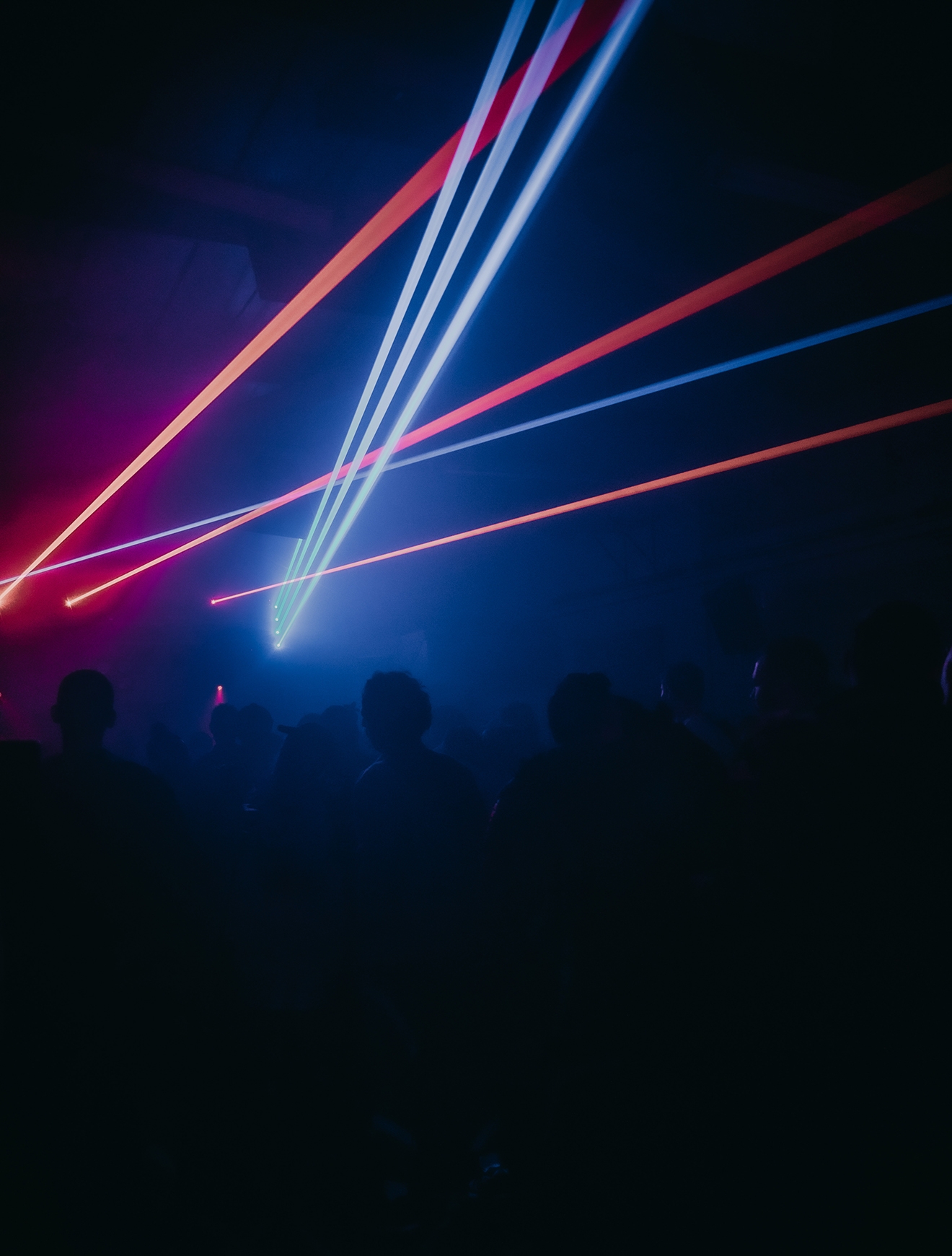
Joseph grew in Elephant & Castle and Luis was just down the way on Walworth Road, areas that have been transformed by gentrification in the last few years. The infamous Heygate Estate was left to rot over a couple of decades before residents were dispersed and the entire estate was demolished over a three-year period. Now the site of plush apartment blocks it epitomises the callous, commercially-driven whitewashing of inner city areas, and it’s right on Joe and Luis’ doorstep. “The thing with gentrification is... I understand that people have to move for work but when you get to a new area at least try to contribute,” Joe says. “Don’t just come in there and try to take away the identity of the area. Add something, there’s always something you can do. That’s why gentrification is so disheartening because it’s bittersweet; the area gets renewed but then no one who lives there can afford to be there anymore.” To counteract the lack of investment in their communities, Joseph and Luis have been hosting DJ lessons for inner city kids at Goldsmiths University, in New Cross. It gives them an opportunity to show young people from similar backgrounds to theirs that electronic music can provide a legitimate path to success and get them out of their often difficult living conditions. “I know it’s a certain privilege we have to do what we do and even being able to throw nights,” Joseph concedes. “But we feel like there’s a responsibility to show people with similar backgrounds to ours that it’s doable.”
“When I tell people that I grew up with what I’m doing now they don’t quite understand it, they have this narrow view of what techno is and it doesn’t connect with them,” Luis adds. “This scene is hidden away from the kids who come from the streets. Where we come from there are only two ways out; sport or rapping. People don’t realise that you can get paid three grand to go to Japan and play a set.”
At Creature Comforts their focus on diversity manifests itself organically through the many friends they’ve made over the last few years. There’s never been a conscious effort to somehow forge an inclusive dancefloor beyond their own open-minded approach to socialising and enjoying the party scene. What you see at their parties is the result of Joseph and Luis’ natural propensity for making friends, with several members of the original party crew attending every one of their events. “Most of our friends are from Peckham so whenever we throw a party everyone’s just happy to see that we’re doing something,” Luis quips. “They’ve seen where we’ve come from and how much progress we’ve been making. They’re starting to believe in it now. It makes them happy.”
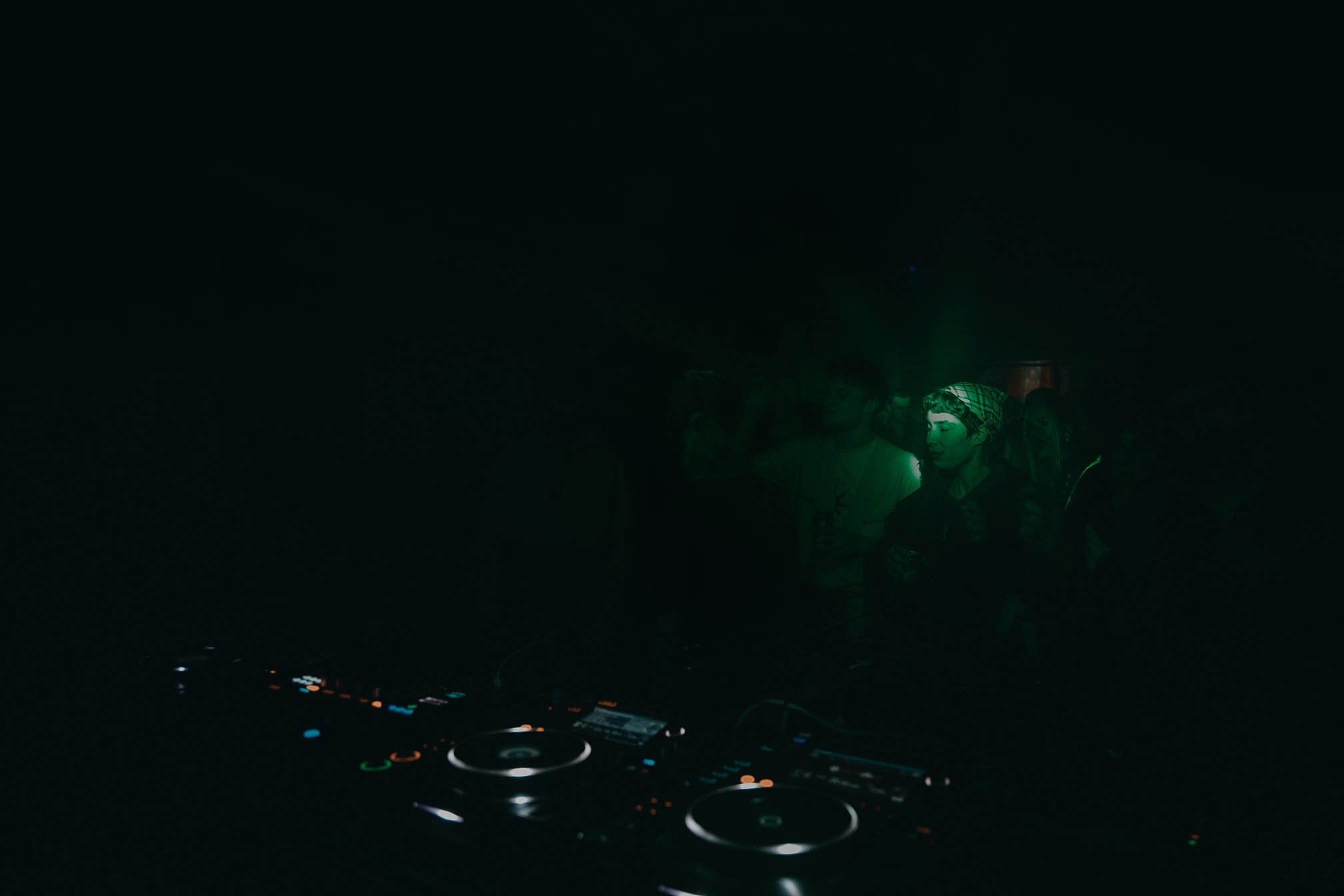
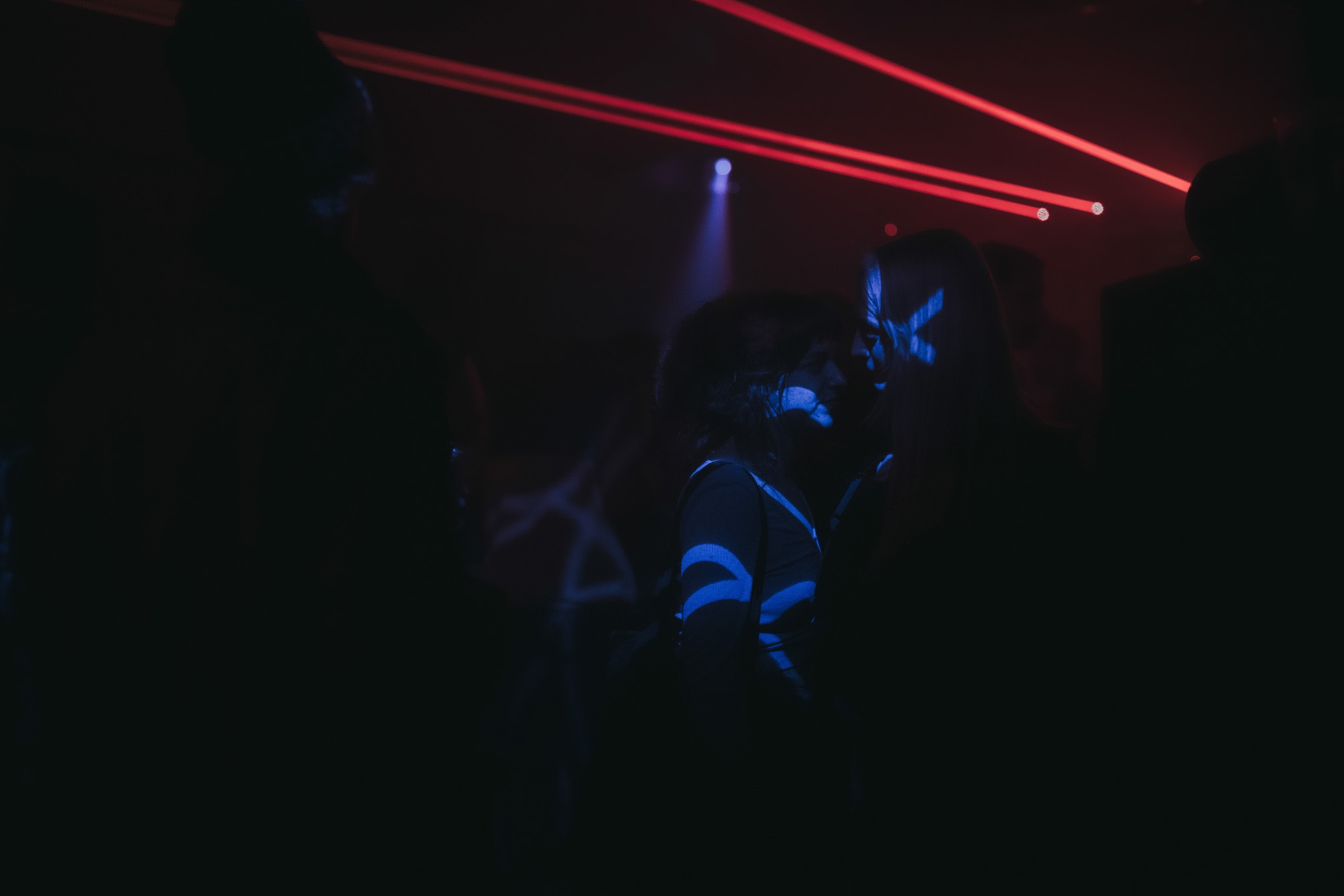
There’s a strong family vibe at the core of what OS Community do, with their Latino and African backgrounds Joseph and Luis experienced a tight-knit, loving environment when they were growing up and that feeds into the way they operate today. “When we collaborated with Dialogue on a party with Russell E.L. Butler and Loraine James we didn’t take them out for an artist dinner, we took them to Dialogue’s house and everyone cooked,” Luis reveals. “My mum made a pot of Colombian red kidney bean stew.” Last year he took his mum and sister, both Jehovah’s Witnesses to Venue MOT, before one of their parties, so they could see what he does. This filters into every aspect of the party, and the response from everyone involved, from the bar staff and security to venue owners is unanimously positive.
The community focus is ever present in their work, Luis is studying Applied Social Science Community Development and Youth Work at uni with the intention of deepening his connection with the youth work sector. It’s something they both feel is sorely lacking in the wider electronic music community. “Within the scene itself there isn’t a lot of focus on helping young people, from council estates or wherever, to use the scene itself as a means to better themselves,” says Luis, citing the work Mike Huckaby was doing in Detroit with Youthville as one of the few endeavours of that kind he’d heard about. The two discuss how rare it is for artists to dedicate their time to imparting their knowledge to inner city kids who have limited opportunities. “There’s no giving back. No one cares, man. I feel like there’s a culture of; if you don’t benefit the other person, no one gives a shit. From the outside the scene can look all rosy, but once you get involved and start seeing how it is and how you have to navigate it, you realise it’s not like that.
Read this next: Marshall Jefferson: Why I quit DJing
“Me and Joseph feel like this because, where we come from, if I’m eating, they’re eating,” he continues. “I’m not about to leave my people in the dirt and disappear. Nah man, we’re all in the same struggle. A lot of people like to say that, ‘We’re in the same struggle’, so why don’t we all help each other out?”
“They don’t care! They just get caught up in their own little bubble and there’s no excuse for that. At the end of the day, it’s not about you. It’s about helping the human race,” Joseph says, talking about Manchester United footballer Marcus Rashford and his campaign to get free school meals for low-income children during summer and winter holidays. “You make a decision to care or not care, I’m not making excuses for anyone. God willing, no matter what success I come into, I will always remember where I come from.”
“Lukas Wigflex is doing some really cool stuff in Nottingham with disadvantaged kids where he does music camps. That’s something we want to emulate, but there’s not enough being done by the bigger heads,” Joseph adds.
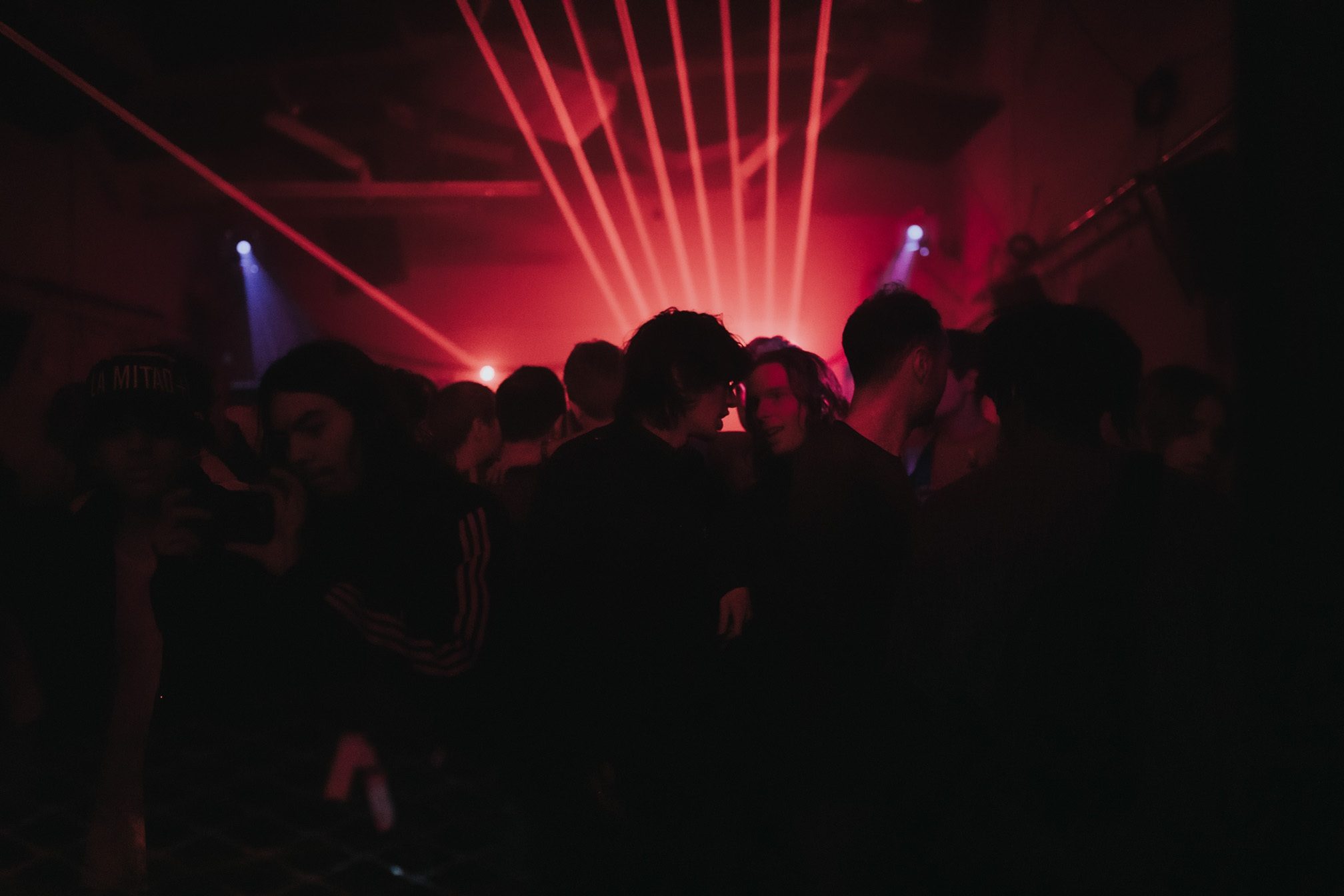
As well as their mission to utilise the scene they love to give back to the community they come from, Joseph and Luis are also putting their energy into building an online presence. In an act of self-empowerment they are launching an OS Community website and content platform. As a lot of artists will attest it can be almost impossible to get press coverage, especially for those who operate at grassroots level. Instead of waiting around for larger platforms to give them a voice (present company excepted), they’re establishing their own and intend to use the website as a means of representing the underrepresented, including the ravers themselves.
“We wanted to put the focus on the actual ravers in the scene, who really make it what it is. There’s always this concentration on the superstar DJs and the celebrity aspect of this culture, but if you didn’t have the ravers buying your records, buying tickets to the parties you don’t really have a scene,” says Joseph. They’ll be giving ravers a space to tell their stories rave tales and how they fell in love with the music, creating a more down-to-earth narrative for readers to connect to. “It’s about creating a platform to give visibility to lesser-known DJs, from marginalised communities. Our mix series is called ‘Expose’ because we’re using it to shine a light on DJs who we know and love but might not have the platform they deserve. People that have the same values as us,” he adds. For Joseph and Luis it’s about the bigger picture and how electronic music culture can be engaged for the purpose of changing the lives of disadvantaged people.
“When I got into this I really wanted to be a DJ on the circuit and don’t get me wrong I’d love that to happen. With stuff like that I could show my mum, give her more money, but if it happens, it happens,” Luis says. “If it don’t, I’d be happy just to have built something that’s gonna stay there and help people.”
They’re also, of course, acutely aware of representation and diversity, hoping their presence in the rave scene will inspire others. Both Joseph and Luis come from immigrant families and feel a responsibility to demonstrate to other people from similar backgrounds that they are deserving of a place in this scene. “I lived in Berlin for two years, I lived in Amsterdam for a year, and I experienced the rave scene in both of those cities. Yeah, they’re both open and everything, but it’s still predominantly white. I was in a club in Amsterdam once and a girl asked me, ‘Why are you here?’,” Joseph says.
Read this next: Kevin Saunderson: “Black people don’t even know that techno came from Black artists”
“I don’t want people of colour to be left behind, I’ve seen what happens and history repeats itself. So you have to be vocal about it, you have to challenge the norm,” he adds. “I ask people sometimes if they realise the pioneers of this music are Black and they’re like, ‘No?!’.”
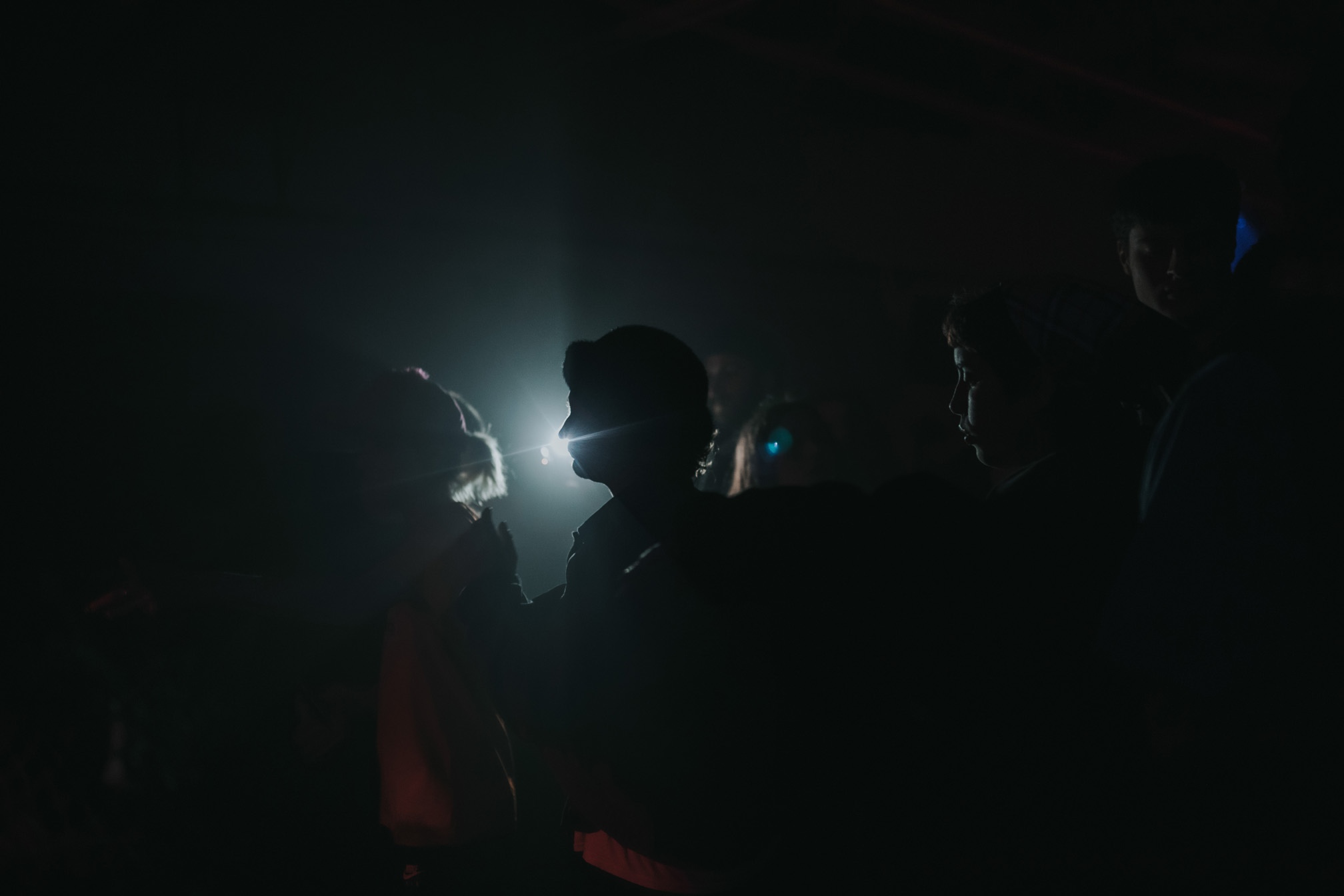
We first spoke to Joseph and Luis in early 2020. Since then, there’s of course been a shift in the way in which Black and other marginalised communities around the world are thought of, with increased awareness of whitewashing, oppression and the malevolence of the systemic privilege that dominates the world. We followed up to check back in with them both, and discussed the effects of the Black Lives Matter explosion last summer. “It’s made me unapologetic,” Joseph says. “I’m not gonna be disrespectful in the way I go about it, but I’m not going to be silenced. It’s not about people’s feelings when you’re telling the truth. What we’ve learned is that, if you don’t speak up, things are easily swept under the carpet. For those of us who know we have a bigger voice, we have to speak out.”
Joseph cites the link between the BLM protests, and the empowering effect they had on himself and others, and the world of electronic music. As a microcosm of sorts, the scene has been put under the microscope, and many of its flaws shown in all their ugly glory. The erasure of its Black roots is a key point that drives Joseph and Luis to continue striving to represent acts who have not benefited from the structural privilege that has given some artists a distinct advantage. "Anytime there’s injustice happening, it’s important for us to be active in creating change,” Joseph says.
Originally a name that started as a bit of a joke, from ‘chatting shit’, OS has now come to represent ‘Our Story’. For both men what they’ve experienced and the narratives they can share with others means they’re able to inspire and connect with those who may be out of reach to international touring DJs. With the DJ workshops, Luis’ degree, the website and their entire ethos, the mission of the OS Community is clear: to leave a legacy that permeates into the very same communities that they come from. “We want to create those spaces like the Saturday school to give back and use our network of contacts to share information and break down stereotypes, to let young people know ‘It’s ok to be different’,” Joseph says. “Music is a powerful tool and if you can use it to do positive things, it can change your life.”
Marcus Barnes is a freelance journalist and regular contributor to Mixmag, follow him on Twitter here
Read this next: Get the best of Mixmag direct to your Facebook DMs


